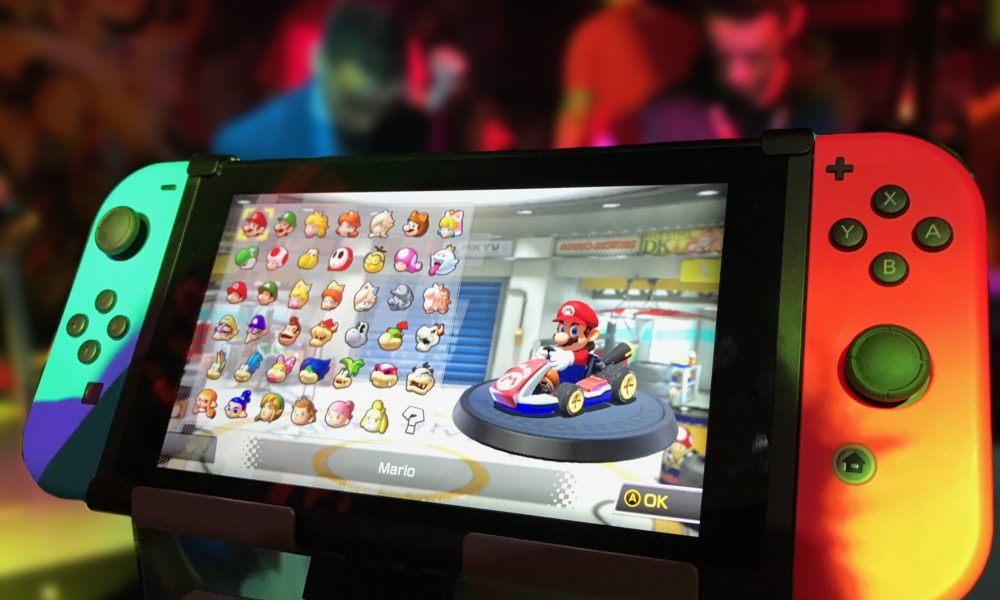In today’s fast-paced digital world, traditional business cards are quickly becoming obsolete. The rise of NFC business cards has revolutionized the way professionals connect and share information. These near-field communication (NFC) cards are not only modern and sleek, but they also provide instant access to digital data without the hassle of manually entering details. This article explores what makes NFC business cards a must-have for any forward-thinking professional or business and how they can elevate your networking game.
What Are NFC Business Cards?
NFC business cards are innovative tools embedded with near-field communication technology, allowing data to be transferred wirelessly when the card is tapped against a compatible device, such as a smartphone or tablet. Unlike traditional business cards that rely solely on printed information, NFC business cards carry digitally stored information such as your website, social media profiles, contact details, and even portfolio links.
When a recipient taps their phone on your card, the embedded NFC chip automatically transfers your information directly to their device. This eliminates the need for typing and makes information sharing seamless, efficient, and interactive.
Why NFC Business Cards Are Better Than Traditional Ones
1. Instant Information Sharing
One of the biggest advantages of NFC business cards is their ability to instantly share information with just a tap. This immediate interaction streamlines the networking process, ensuring that your contact details are saved on the recipient’s device in a matter of seconds. Traditional paper cards, on the other hand, require manual entry, which is time-consuming and prone to errors.
2. Unlimited Updates
With a digital NFC business card, you can easily update your information whenever needed. If your phone number changes or your social media handle is different, you don’t need to reprint new cards. The digital data stored on your NFC card can be updated without needing a new physical card, saving both money and the environment.
3. Eco-Friendly Option
In an age where sustainability is increasingly important, NFC business cards provide an eco-friendly alternative to traditional paper cards. Millions of paper business cards are discarded each year, contributing to unnecessary waste. NFC cards, however, can be reused indefinitely and don’t contribute to paper waste. By switching to NFC cards, businesses can demonstrate their commitment to environmental sustainability.
4. Increased Engagement
NFC business cards are far more interactive than their paper counterparts. Recipients can tap the card and immediately access your social media profiles, websites, portfolios, and even videos. This level of engagement leaves a lasting impression, ensuring that potential clients or business contacts are more likely to remember you. Traditional business cards are static and often get lost or forgotten, while NFC cards make it easy to keep your information at their fingertips.
5. Enhanced Professionalism
Using an NFC-enabled business card adds a touch of modernity and professionalism to your brand. It shows that you’re tech-savvy and on the cutting edge of networking trends. For business owners, freelancers, and professionals in the tech or creative industries, NFC cards can reflect innovation and forward-thinking—qualities that can make a strong impression on potential clients or collaborators.
How NFC Business Cards Work
The technology behind NFC business cards is both simple and powerful. These cards contain a small NFC chip that stores your information. When the card is tapped against an NFC-enabled smartphone or device, the chip transfers your data directly to that device.
Steps to Using an NFC Business Card:
- Programming the NFC Chip: You can program your NFC chip to include contact details, URLs, social media links, or any other information you want to share. This can be done using an app or service specifically designed for NFC programming.
- Tapping the Card: When you meet someone, simply ask them to tap their smartphone against your card. The NFC chip will send the stored data to their phone, either by automatically opening a URL or allowing them to save the contact information.
- Instant Access: After the tap, the recipient can instantly view your contact information, website, or social media profiles. This makes follow-up easier and more efficient.
NFC Business Card Use Cases
NFC business cards aren’t limited to just contact information. Here are a few use cases where NFC cards can be game-changers:
1. Event Networking
If you frequently attend networking events or conferences, NFC business cards make it easy to share your details with multiple people quickly. Instead of handing out hundreds of paper cards, you can rely on a single NFC card to transfer your contact information to anyone with a tap.
2. Marketing and Promotion
NFC business cards are perfect for businesses looking to promote a product or service. You can program your card to direct users to a landing page, promotional video, or special offer, creating a direct pathway to lead generation and increased sales.
3. Artists and Creatives
For artists, photographers, designers, or musicians, NFC business cards can include links to digital portfolios or streaming platforms. Recipients can instantly access your work without the need to type in long URLs, giving you greater exposure and engagement.
4. Real Estate and Retail
Real estate agents can use NFC business cards to share property listings, and retail businesses can use them for exclusive offers or loyalty programs. With NFC technology, these cards become more than just a business card—they’re a tool for customer engagement.
How to Create an NFC Business Card
Creating an NFC business card is relatively straightforward. Here’s a quick guide:
1. Choose a Design
You can choose from a wide variety of designs and materials. Many NFC cards are made from durable plastic or metal, giving them a sleek, modern appearance.
2. Program Your Chip
Once you have your card, you can program the NFC chip using an app. Most apps will allow you to program various types of data, including contact information, website URLs, social media links, or even payment information.
3. Test the Card
Before using your NFC business card, it’s important to test it on multiple devices to ensure it works properly. Tap the card on a few different NFC-enabled phones to make sure the chip is properly programmed.
4. Start Networking
Once your card is set up, you’re ready to start using it. Carry it with you to events, meetings, or wherever you may need to share your information.
The Future of NFC Business Cards
As more professionals and businesses move toward digital solutions, NFC business cards are likely to become the norm. They offer a modern, convenient, and eco-friendly way to share information and stand out in a crowded market. With the ability to update your details on the fly, track engagement, and reduce waste, NFC business cards represent the future of networking.
If you’re looking to enhance your professional image and make a lasting impression, now is the time to make the switch to NFC business cards.









